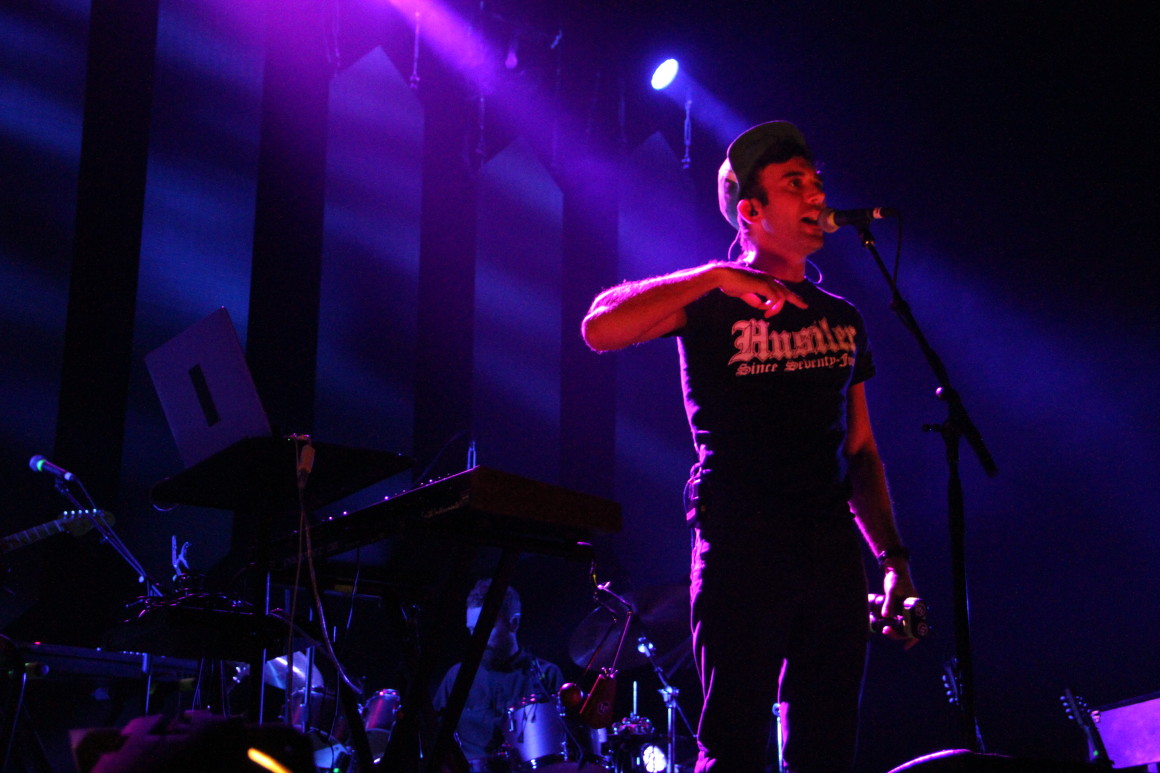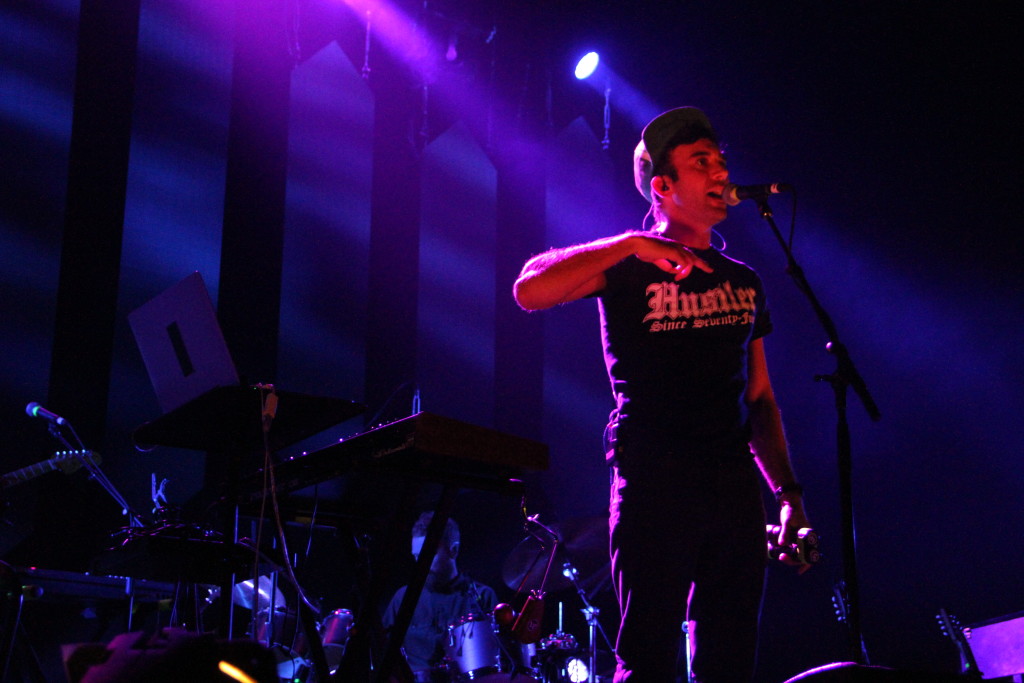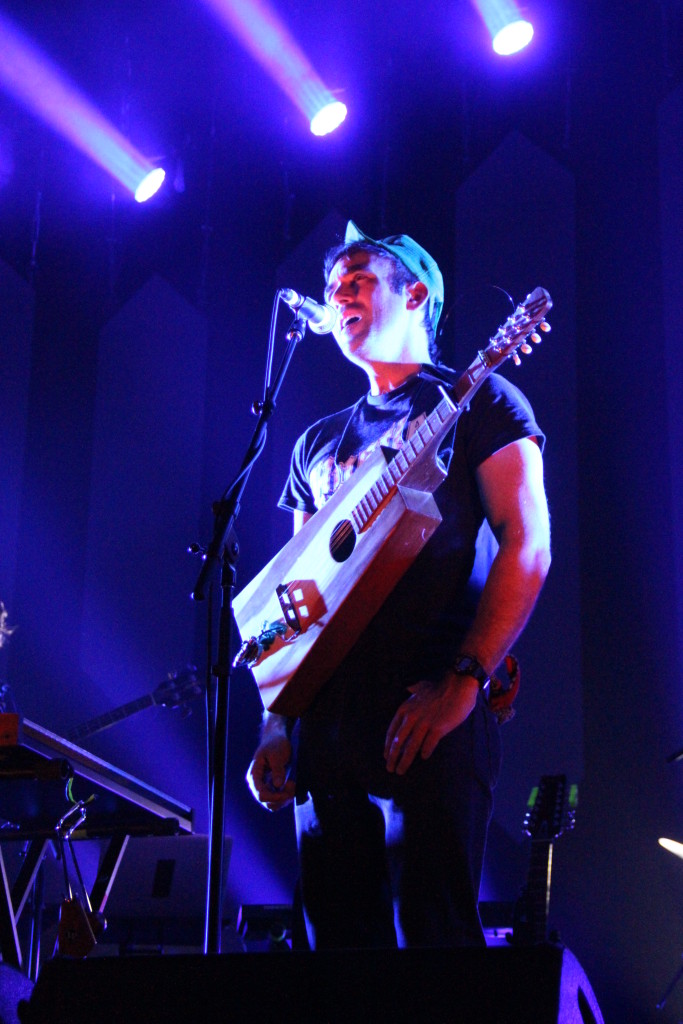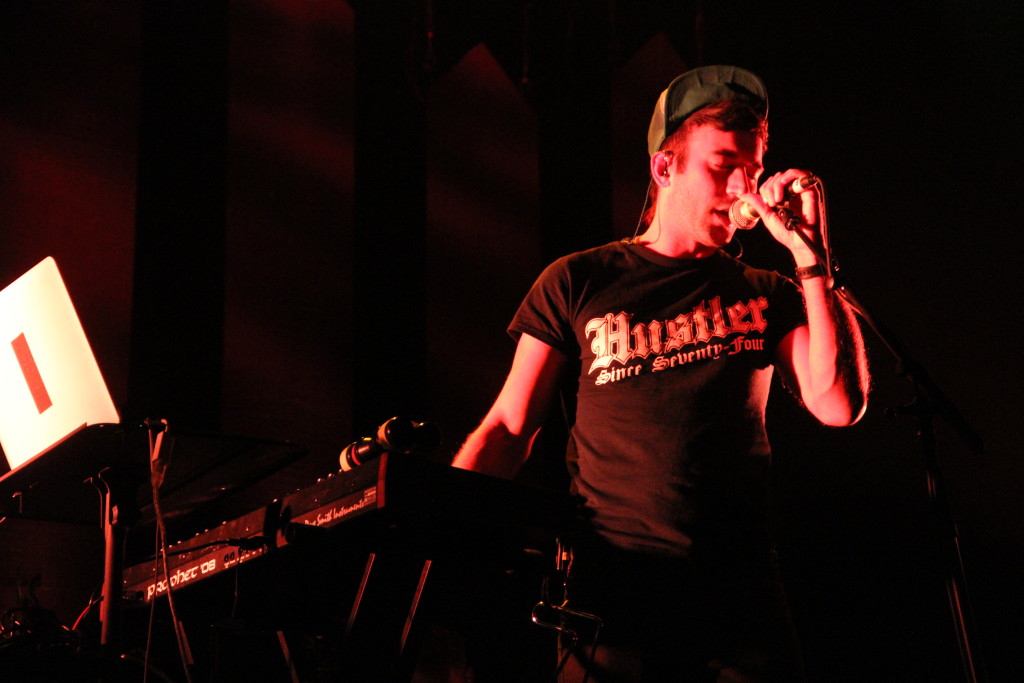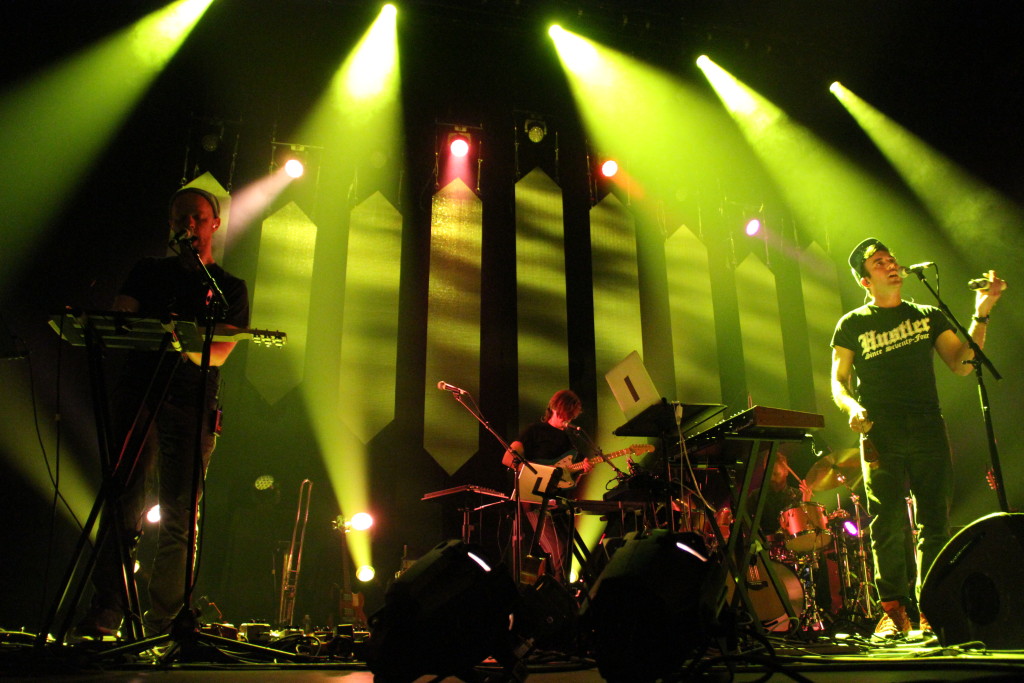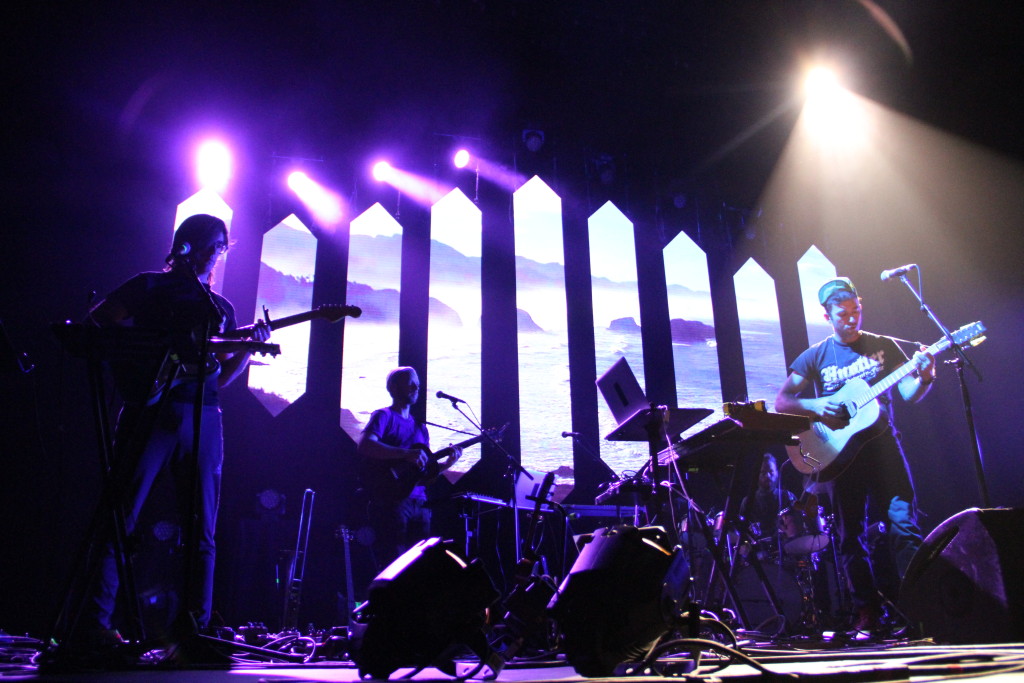Halfway through his nearly two-hour set at the Masonic Temple Theatre, Sufjan Stevens took a break from the stirring renditions of the spare, haunting songs off his latest studio album, Carrie & Lowell, to address the audience. In a brief monologue, he reminisced about his childhood in Detroit, from his birth in Hutzel Hospital to growing up in a house close enough to Indian Village that his family claimed residence by proximity. They would later move up north to Petoskey, and after attending college in Holland, Stevens would go on to his current home of Brooklyn; however, last night his thoughts were focused on the Motor City.
Unsurprisingly, the singer dismissed the tired narratives that portray his birthplace as “apocalyptic.” More notable, though, was Stevens’ flipping of the script – not just on the media, but on himself – when he declared that his hometown, long held up as a “city of industry,” is actually a “city of imagination.” After all, it’s the word industry that Stevens repeats on his 2003 song “Detroit, Lift Up Your Weary Head! (Rebuild! Restore! Reconsider!)” And in a recent interview, the songwriter stated “My imagination can be a problem.”
But if there were any problems during last night’s show, no one could possibly see or hear them. What we got instead was a flawless performance of material concerning our flawed existence. The first part of the set drew entirely from Carrie & Lowell, an album that centers on the death of Stevens’ mother in December 2012. On record, the arrangements are pared back, with the gleam of an acoustic guitar or piano the only luster adorning the singer’s ethereal lamentations. On stage, Stevens – joined by four other musicians – brought these songs out of suspended animation, breathing new life into quiet reveries and transforming them into grand statements on mortality.
Stevens, clad in a trucker hat and form-fitting graphic tee emblazoned with the word “Hustler” (Detroit does it harder?), would not seem out of place in a trendpiece from 2003. Indeed, the boyish-looking singer feels like a man perpetually on the cusp of thirty. That sense of hovering in an indefinable temporal zone, of floating in limbo, was palpable throughout the night. During “Death with Dignity,” home movies of Stevens’ childhood were projected on the floating screens, punctuating the recollections of the song’s lyrics with the bittersweet reminders of more innocent times.
Often Stevens would reach for the sublime – in the Romantic sense of the term – and flesh out the arrangements and extend the codas to his songs, as if they were stretching into the Great Beyond. Images of ocean waves lapping on the shore or desert rock formations would fill the series of hexagonal shaped panels, like a contemporary update on the stunning vistas of the Hudson River School. Sometimes brightly colored hues would saturate the screens and they resembled surf boards or paintings by Mark Rothko, another artist known for contemplating death.
Yet for a show so front-loaded with heavy emotions, there was still room for joy. Carrie highlight “All of Me Wants All of You” transformed from a sad-eyed meditation to an almost trance-like serenade. The guitars were plugged in, the title gained force not only through repetition but by backup vocalists, and synthesizers were thrown in the mix. A song of grief-stricken despair turned to one of pent-up desire as the number hit a groove and Stevens began to dance almost seductively.
Sufjan Stevens’ music has always been suffused with a sense of place, and this was true of his live show. Many times during his set, an incantatory quality took hold and the original purpose of the Masonic Temple was realized. The spiritual, the ritualized – in an age that favors connectedness over connection, those qualities feel alien or archaic. In fact, the very Christian thread of Stevens’ work is often treated as an eccentricity rather than essential element. Yet when he and his musicians reached the crescendo of “Fourth of July,” it sounded as if there were five hundred – and not five – individuals chanting “We’re all gonna die.” For a performance so intimate, it scaled epic proportions.
Nowhere was that more true than the encore, where Stevens reached into his back catalog to play many fan favorites from albums including Seven Swans and Illinois. It was here that Stevens betrayed his only sign of age, when during “Casimir Pulaski Day,” his voice cracked during a stretch of falsetto, and he joked “I’m getting old.” The recognition of impending mortality dovetailed with the first half of his set.
We’re all gonna die. It can be a scary thought; but it can also be a liberating one. At least one person in the audience seemed to get it, or so I’d like to think. During Stevens’ last song, “Chicago,” a man in the crowd yelled “Freedom!” There was a smattering of applause from the audience, and Stevens was unable to sing a refrain because he was restrained by a fit of laughter. It takes imagination to put the brakes on a song about Chicago, and only Detroit has that kind of imagination. It’s a good problem to have.
